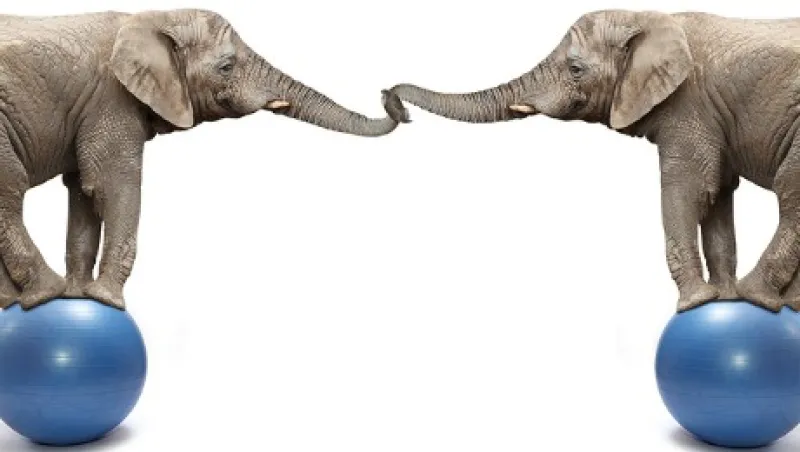As sentiment toward emerging markets has turned negative over the past few years, African economies have not been spared from the ensuing rout. Of particular note is the fact that several economies are hampered by large twin deficits, both in their fiscal and current accounts, largely as the result of strong growth in government spending over the past decade. If governments or individuals spend more than they earn, their debt increases. If they have also been importing more than they have been exporting, it means that this increase in debt is denominated in U.S. dollars.
Will African economies be able to grow in this challenging global environment? The fact is that neither academic nor market analysis has been very successful in predicting when or if economies will grow. We at Investec Asset Management do, however, believe that an economy in which government spending has been targeted efficiently at long-term infrastructure investment has a much better prospect of generating future growth than one in which spending has gone toward salaries and consumption.
Government infrastructure investments have been an important cause of twin deficits in many African countries, including Kenya, Egypt, Uganda and Ethiopia. These investments have required the importation of capital goods. These imports account for much of these countries’ current-account deficits. Furthermore, infrastructure funding has necessitated increased borrowing, and in the case of less-developed emerging markets — African nations included — this often means borrowing offshore in a hard currency. As a result, African countries’ indebtedness has increased materially from the extremely low base after the debt write-offs at the beginning of this century.
When considering the combination of debt levels to gross domestic product and current-account deficits, some countries are more favorably positioned than others. For example, Nigeria has a relatively small current-account deficit of just below 2 percent of GDP, following the recent decrease in its oil exports. The country has managed to keep its debt levels quite low, at approximately 10.5 percent as of 2014, the last reported figure. Egypt, on the other hand, has a slightly higher current-account deficit of 3.7 percent, projected for 2015, which together with its significantly higher level of debt-to-GDP — in excess of 90 percent — puts it in a more difficult situation.
Whereas the commitment to infrastructure development is encouraging, the key question becomes whether this borrowed money has been efficiently spent. Yet an increase in debt is not necessarily negative for a developing economy, in our view. We believe that if the borrowed money is spent wisely by investing in infrastructure, it should enable greater economic growth. The next five years will strongly indicate which countries have invested wisely and which are willing to implement the necessary reforms for a sustainable future. Tougher global economic conditions might just force countries to adopt better government policies that will encourage investment. Although we expect that assistance from the International Monetary Fund will be needed for some countries within the next two years, we believe steady growth will be the winning pace in Africa.
Policy decisions might well prove to be the differentiator for several key economies. Egypt, for example, is showing real delivery on investment regulation reform under President Abdel Fattah el-Sisi but is facing significant external pressure on the Egyptian pound, and, given the importance of subsidies for social stability, we believe the government will struggle to reduce its fiscal deficit over the short term. Morocco continues to impress with its ability to rein in spending and attract foreign direct investment. Uganda has withstood the temptation to borrow in U.S. dollars and opted mostly for Ugandan shilling–denominated debt and therefore finds itself in a much healthier position than most other African countries. Questions remain, however, over whether the government will provide a policy environment conducive to investment if 30-year President Yoweri Museveni stays in power.
Lastly, Ghana, one of the world’s fastest-growing economies over the past decade and a good example of this race between debt and growth, may once again need help from the IMF — albeit for only a short while. The economy should be aided by the expected doubling of oil production by the end of 2016, which was enabled in large part by the very real fiscal reforms implemented under the current IMF program.
In our view, whether growth or debt wins over the longer term is a function of a number of factors, with policy being the key variable to keep an eye on. We believe this holds the answer to the question of whether the past 15 years of Africa’s economic performance was cyclical (and temporary), or the result of structural change. In the near term, although uncertainty and continued volatility are expected to dampen sentiment toward African equity markets, these periods often provide significant opportunities to invest in quality businesses with sustainable business models at attractive entry points.
Khaya Gobodo, based in Cape Town, is co-strategy leader, Africa public markets, and Antoon de Klerk is a London-based portfolio manager; both with Investec Asset Management.
Get more on emerging markets.






